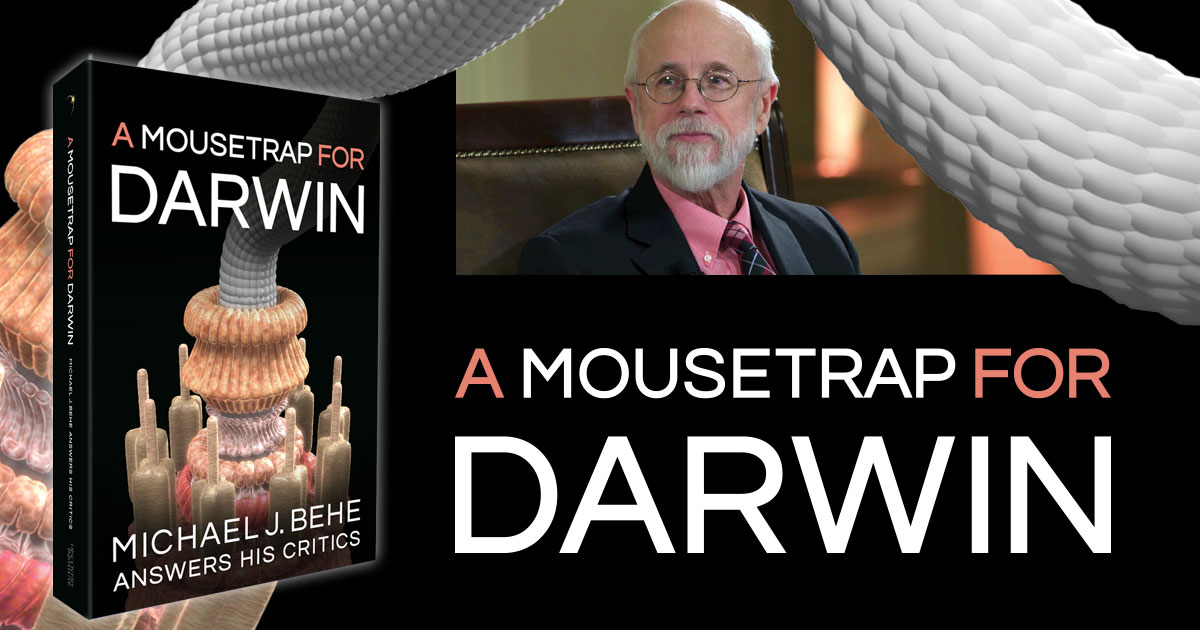Darwin Is on the Roof — New Book from Michael Behe, Available Now
David Klinghoffer@d_klinghoffer
November 18, 2020, 6:24 AM
Photo credit: Bruce Gendler via Unsplash.
There is a joke about
a cat on a roof:
A man left his cat with his brother while he went on vacation for a week. When he came back, he called his brother to see when he could pick the cat up. The brother hesitated, then said, “I’m so sorry, but while you were away, the cat died.”
The man was very upset and yelled, “You know, you could have broken the news to me better than that. When I called today, you could have said he was on the roof and wouldn’t come down. Then when I called the next day, you could have said that he had fallen off and the vet was working on patching him up. Then when I called the third day, you could have said he had passed away.”
The brother thought about it and apologized.
“So how’s Mom?” asked the man.
“She’s on the roof and won’t come down.”
Jokes when analyzed lose their humor. At the risking of my bludgeoning this particular joke, the premise here is that people more readily accept shocking news when it’s given to them in partial steps. Not, “The cat is dead,” but first, “The cat is on the roof.” Something like that is going on in the debate about evolution. As biochemist Michael Behe explains in the Introduction to his new book, out today —
A Mousetrap for Darwin: Michael J. Behe Answers His Critics — the public is being prepared very slowly for the demise of Darwinian evolutionary theory. It wasn’t planned that way, but it is how things are playing out.
All Is Still Well?
As popular media and biology textbooks present the matter, all is still well with Darwin. He is on the roof, but safe. ID scientists, such as that scoundrel Michael Behe, may pose their “anti-science” challenges. However, it is merely a gentle breeze on a cat’s fur.
But wait… Actually, the cat’s fate has advanced a step beyond that. Behe writes:
Since the turn of the millennium a raft of distinguished biologists have written books critically evaluating evolutionary theory. None of them think that Darwin’s mechanism is the main driver of life. It may surprise people who get their information about the state of science from gee-whiz puff pieces in the mainstream media, but, although strong partisans still hold out, the eclipse of Darwinism in the scientific community is well-advanced. A few years ago the journal Nature published an exchange between two groups of scientists, one defending Darwin and the other saying it’s time to move on. It’s nice to have defenders, but when an idea has been around for 150 years — wished well by all right-thinking people, investigated to death by the scientific community — and a piece appears in the world’s leading science journal saying it’s time to move on, then it’s time to move on.
The question of course is, move on to what? Those books by scientists dissing Darwin offer their own clever ideas, but so far the scientific community isn’t buying any of them. All the new ideas — self-organization, facilitated variation, symbiosis, complexity theory, and more — are quickly concluded to be nonstarters, to have the same problems as Darwin’s theory, or both. In the absence of an acceptable replacement — and because of its usefulness as a defensive talking point in fending off skepticism from the public — intellectual inertia maintains Darwinism as textbook orthodoxy.
An Independent Audit
Actually, for Darwinism, the situation is even worse than
that. Books by Behe, and other ID theorists doing an independent of audit of evolutionary thinking, find devastating faults in the theory.
But hold on, the critics have their responses to the ID proponents. They say Behe never answers their rebuttals! As a trio of prominent scientist authors, Nathan Lents, Joshua Swamidass, and Richard Lenski,
wrote in the journal
Science last year in reply Dr. Behe’s book
Darwin Devolves (emphasis added):
- “Behe…ignores the fact that some of his prior arguments have been dismantled.”
- “Behe doubles down on his claim that the evolution of chloroquine resistance in malaria by random mutations is exceedingly unlikely because at least two mutations are required, neither of which is beneficial without the other. His calculations have already been refuted.”
- “Ultimately, Darwin Devolves fails to challenge modern evolutionary science because, once again, Behe does not fully engage with it.”
That sounds pretty bad. He “ignores” critics. He “double down on his claims” that “have already been refuted.” He fails to “engage.” Behe’s purported unresponsiveness was one of the main themes of the attack by Lents et al. Surely the cat is safe after all. It is on the operating table. It may be under veterinary anesthesia but is expected to recover just fine. Right?
Unfortunately for Darwin’s partisans, no. Dear Sir or Madam, we regret to inform you of the passing of your pet theory. Claims that Mike Behe doesn’t answer critics are massively refuted now with the publication of his new book. It is
556 pages of answers to critics, all written with Behe’s customary wit and rigor. The chapters cover the range of criticisms that have been aimed at his books. Some, including devastating answers to Lents, Swamidass, and Lenski, were published first by us here at
Evolution News.
This giant book is among the strongest indicators yet that the cat is dead. The public hasn’t been informed yet and evolution theory’s loyal defenders are in denial. It’s just a matter of time, though. Michael Behe demonstrates as much in
A Mousetrap for Darwin.
Order your copy now!




